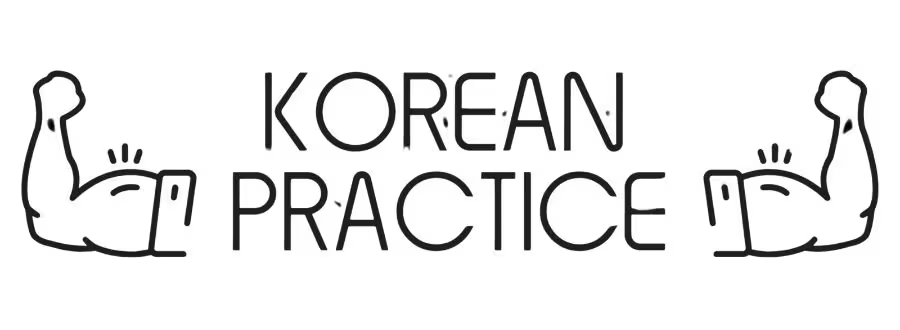Korean Hurry Culture is all about doing everything fast—working fast, studying fast, deciding fast, and even relaxing fast. It’s a mindset shaped by Korea’s ppalli-ppalli (“hurry-hurry”) culture, where efficiency is praised but stress often follows. If you’ve ever wondered why Korea moves at such incredible speed and how this affects daily life and work-life balance, here’s the quick answer:
Korea’s hurry culture comes from a mix of high expectations, intense competition, and advanced technology that rewards speed over rest.
Curious to see how this plays out in school, work, trends, and even K-pop?
Let’s dive in and explore the real heart of Korean Hurry Culture.

Follow These Steps
Step 1: Listen & Shadow
Follow the audio and speak along with the highlighted text.
Step 2: Check & Learn
Use the breakdowns to understand grammar, vocab, and meaning.
Go Deeper
STEP 1 Listen & Shadow
Click play and speak along with the highlighted text below
Table of Contents
STEP 2 Check & Learn
The Origins of Korean Hurry Culture
In busy South Korea, a mix of old customs and fast modern life created a hurry culture. Since the 1960s, as Korea grew into an economic power, people learned to value time and efficiency. Confucian ideas about hard work pushed that even further.
Original Korean Sentence
한국의 서두르기 문화는 바쁜 현대 사회에서 나왔어요.
Pronunciation Guide
한국의 (han-gu-ge) 서두르기 (seo-du-reu-gi) 문화는 (mun-hwa-neun) 바쁜 (ba-bbeun) 현대 (hyeon-dae) 사회에서 (sa-hoe-e-seo) 나왔어요 (na-wat-sseo-yo).
Meaning and Context
한국 (Korea) 의 (‘s) 서두르기 (hurry) 문화 (culture) 는 (my topic is Korea’s hurry culture) 바쁜 (busy) 현대 (modern) 사회 (society) 에서 (from) 나오 (to come out) 았 (past tense) 어요 (I’m telling you polite and friendly). * 나오 + 았 = 나왔
English Translation
Korea’s hurry culture came from a busy modern society.
Literal Translation
Korea’s hurry culture came from busy modern society.
Original Korean Sentence
한국인들은 시간을 매우 중요하게 생각해요.
Pronunciation Guide
한국인들은 (han-gu-gin-deu-reun) 시간을 (si-ga-neul) 매우 (mae-u) 중요하게 (jung-yo-ha-ge) 생각해요 (saeng-gak-kae-yo).
Meaning and Context
한국인 (Korean) 들 (s) 은 (my topic is Koreans) 시간 (time) 을 (my object is time) 매우 (very) 중요하 (to be important) 게 (in a manner which is important) 생각하 (to think) 해요 (I’m telling you polite and friendly). *생각하 -> 생각해
English Translation
Koreans consider time to be very important.
Literal Translation
Koreans think time in a manner which is very important.
Teacher in Korean: The 5 Correct Ways to Address Teachers (Avoid These Common Mistakes!)
Still wondering how to read Korean?
Technology’s Big Role
Thanks to smartphones, super-fast internet, and services like instant delivery, Korean hurry culture moved into overdrive. Koreans now expect quick results in everything—from online shopping to ordering food.
This tech boom helped shape the overall speed culture in Korea.
Original Korean Sentence
한국인들은 스마트폰과 인터넷을 통해 효율적으로 일상 생활을 관리해요.
Pronunciation Guide
한국인들은 (han-gu-gin-deu-reun) 스마트폰과 (seu-ma-teu-pon-gwa) 인터넷을 (in-teo-ne-seul) 통해 (tong-hae) 효율적으로 (hyo-yul-jjeo-geu-ro) 일상 (il-sang) 생활을 (saeng-hwa-reul) 관리해요 (gwan-ri-hae-yo).
Meaning and Context
한국인 (Korean) 들 (s) 은 (my topic is Koreans) 스마트폰 (smartphone) 과 (and) 인터넷 (internet) 을 통해 (through) 효율적으로 (efficiently) 일상 (daily) 생활 (life) 을 (my object is daily lives) 관리하 (to manage) 해요 (I’m telling you polite and friendly). * 관리하 -> 관리해
English Translation
Koreans efficiently manage their daily lives through smartphones and the internet.
Literal Translation
Koreans efficiently manage daily life through smartphone and internet.
Original Korean Sentence
한국인들은 기술을 통해 손쉽게 정보를 얻을 수 있어요.
Pronunciation Guide
한국인들은 (han-gu-gin-deu-reun) 기술을 (gi-su-reul) 통해 (tong-hae) 손쉽게 (son-swip-ge) 정보를 (jeong-bo-reul) 얻을 (eo-deul) 수 (su) 있어요 (it-sseo-yo).
Meaning and Context
한국인 (Korean) 들 (s) 은 (my topic is Koreans) 기술 (technology) 을 통해 (through) 손쉽게 (easily) 정보 (information) 를 (my object is informatioin) 얻 (to obtain) 을 수 있 (can) 어요 (I’m telling you polite and friendly).
English Translation
Koreans can easily obtain information through technology.
Konglish: The Fun Mix of Korean and English
School and the Push to Succeed
School in Korea is intense. With tough tests and fierce competition, students spend long hours at hagwon (cram schools). It’s all about the fastest path to success—exactly what the “ppalli ppalli culture” is all about.
Original Korean Sentence
한국에서는 치열한 경쟁이 있어요.
Pronunciation Guide
한국에서는 (han-gu-ge-seo-neun) 치열한 (chi-yeol-han) 경쟁이 (gyeong-jaeng-i) 있어요 (it-sseo-yo).
Meaning and Context
한국 (Korea) 에서 (in) 는 (my topic is in Korea) 치열한 (intense) 경쟁 (competition) 이 있 (there is) 어요 (I’m telling you polite and friendly).
English Translation
There is intense competition in Korea.
Original Korean Sentence
엄격한 시험들이 학생들의 미래를 결정해요.
Pronunciation Guide
엄격한 (eom-ggyeok-kan) 시험들이 (si-heom-deu-ri) 학생들의 (hak-saeng-deu-re) 미래를 (mi-rae-reul) 결정해요 (gyeol-jjeong-hae-yo).
Meaning and Context
엄격한 (rigorous) 시험 (exam) 들 (s) 이 (my subject is rigorous exams) 학생 (student) 들 (s) 의 (‘s) 미래 (future) 를 (my object is students’ future) 결정하 (to determine) 해요 (I’m telling you polite and friendly). * 결정하 -> 결정해
English Translation
Rigorous exams determine students’ future.
Sajangnim Meaning: Why Koreans Call the Boss This Unique Word
Want the easiest way to understand and speak Korean?
My courses include:
→ Story lessons with MORE powerful breakdowns
→ Speaking, dictation & shadowing practice + much more
→ Interactive quizzes
🎁 7-day trial included with subscription
Work Life and Long Hours
In Korean offices, working late is the norm. This “hurry hurry mentality Korea” shows up in quick deadlines and nonstop tasks. People push hard to keep up in a world where slow isn’t an option.
Original Korean Sentence
한국은 긴 근로 시간으로 유명합니다.
Pronunciation Guide
한국은 (han-gu-geun) 긴 (gin) 근로 (geun-ro) 시간으로 (si-ga-neu-ro) 유명합니다 (yu-myeong-ham-ni-da).
Meaning and Context
한국 (Korea) 은 (my toic is Korea) 긴 (long) 근로 (working) 시간 (hour) 으로 (with) 유명하 (to be famous) ㅂ니다 (is; I’m telling you in a polite and formal way). * 유명하 + ㅂ니다 = 유명합니다
English Translation
Korea is famous for its long working hours.
Literal Translation
Korea is famous with long working hour.
Did You Eat in Korean? Why This Greeting Means More Than Food
Everyday Habits and Convenience
Even eating is fast in Korea. Many places serve food instantly. With the rise of convenience stores and 24/7 services, the “Korean efficiency mindset” is visible in simple daily choices.
Original Korean Sentence
편의 문화가 한국에서 성장하고 있어요.
Pronunciation Guide
편의 (pyeo-ni) 문화가 (mun-hwa-ga) 한국에서 (han-gu-ge-seo) 성장하고 (seong-jang-ha-go) 있어요 (it-sseo-yo).
Meaning and Context
편의 (convenience) 문화 (culture) 가 (my subject is convenience culture) 한국 (Korea) 에서 (in) 성장하 (to grow) 고 있 (~ing) 어요 (is; I’m telling you polite and friendly).
English Translation
Convenience culture is growing in Korea.
Blind Date in Korean: Learn the Word Sogaeting and Korean Dating Culture
The Downside: Stress and Burnout
All this speed has a cost. High stress, poor work-life balance, and less time to just relax or enjoy life are real issues. People are starting to ask: is this pace worth it?
Original Korean Sentence
한국에서는 일을 빨리 해야 합니다.
Pronunciation Guide
한국에서는 (han-gu-ge-seo-neun) 일을 (i-reul) 빨리 (ppal-li) 해야 (hae-ya) 합니다 (ham-ni-da).
Meaning and Context
한국 (Korea) 에서 (in) 는 (my topic is in Korea) 일 (work) 을 (my object is work) 빨리 (quickly) 해야 하 (have to) ㅂ니다 (I’m telling you in a polite and formal way). * 해야 하 + ㅂ니다 = 해야 합니다
English Translation
In Korea, you need to work quickly.
Literal Translation
in Korea, (you) have to do work quickly.
6 Korean Table Etiquette Mistakes Foreigners Often Make (And How to Avoid Them)
FAQs (What You Might Still Wonder About)
Is ppalli-ppalli culture unique to Korea?
Yes. While many countries value efficiency, ppalli-ppalli culture is deeply tied to Korean history and rapid development. This unique speed culture in Korea came from decades of economic growth, technology, and the strong Korean efficiency mindset.
How does ppalli-ppalli culture affect Korean work-life balance?
It often leads to longer work hours and high stress. Many Koreans struggle with work-life balance in Korea because the hurry-hurry mentality pushes people to meet tight deadlines and always be “on.”
Does ppalli-ppalli culture influence K-pop and entertainment?
Absolutely! The K-pop hurry culture is intense. Idols train for years under strict schedules, and new songs, dances, and trends appear rapidly to keep up with fans’ expectations.
How does technology support ppalli-ppalli culture?
Fast internet, food delivery apps, and mobile payments all strengthen the speed culture in Korea. Technology allows people to save time, which feeds into the Korean hurry culture even more.
Are there positive sides to the hurry-hurry mentality?
Yes. The hurry-hurry mentality in Korea helped the country rebuild quickly after war, boosting economic growth and innovation. It shows how the Korean efficiency mindset can achieve amazing results.
Can foreigners adapt easily to ppalli-ppalli culture?
It can be challenging at first! Foreigners may feel pressure to keep up with the ppalli-ppalli culture, but understanding the hurry-hurry mentality Korea values helps make daily life smoother.
Final words
In conclusion, Korean hurry culture, also known as the culture of Korean hurry, is a multifaceted phenomenon that has its roots in South Korea’s rapid development and technological advancements.
This unique aspect of Korean society, the Korean hurry culture, can be observed in various domains, including education, work, and daily life.
The influence of Korean hurry culture can be seen in the fast-paced nature of education, where students face intense academic competition and strive to excel. Similarly, in the workplace, the Korean hurry culture manifests in the expectation for employees to work quickly and efficiently.
The concept of Korean hurry is deeply ingrained in the societal fabric, shaping the mindset and behaviors of individuals as they navigate their daily routines.
However, it is important to recognize that while the Korean hurry culture has its benefits, such as driving productivity and progress, it also raises concerns regarding stress levels and work-life balance.







